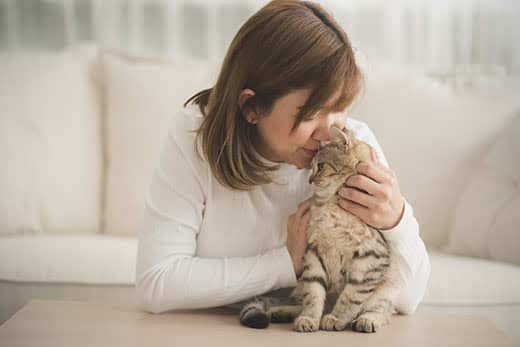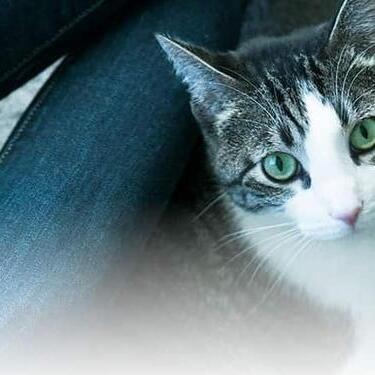
-
Find the right food for your pet
Take this quiz to see which food may be the best for your furry friend.
Find the right food for your pet
Take this quiz to see which food may be the best for your furry friend.
Featured products
 Adult Healthy Cuisine Roasted Chicken, Carrots & Spinach Stew Dog Food
Adult Healthy Cuisine Roasted Chicken, Carrots & Spinach Stew Dog FoodDelicious roasted chicken paired with tender vegetables in a succulent stew
Shop Now Adult 7+ Perfect Digestion Chicken, Whole Oats & Brown Rice Recipe Dog Food
Adult 7+ Perfect Digestion Chicken, Whole Oats & Brown Rice Recipe Dog FoodScience Diet's breakthrough nutrition supports ultimate digestive well-being & healthy microbiome for dogs age 7+
Shop Now Small & Mini Savory Stew with Chicken & Vegetables Dog Food
Small & Mini Savory Stew with Chicken & Vegetables Dog FoodA delicious complement to the nutrition of Science Diet Small & Mini 7+ dog food
Shop NowFeatured products
 Adult Savory Entrée Can Variety Pack Cat Food
Adult Savory Entrée Can Variety Pack Cat FoodPrecisely balanced nutrition with the delicious taste of savory minced chicken to help fuel the energy needs of cats during the prime of their life
Shop Now Adult 7+ Tender Tuna Dinner Cat Food
Adult 7+ Tender Tuna Dinner Cat FoodWith delicious chunks in a decadent gravy
Shop Now Adult 7+ Senior Vitality Chicken & Vegetable Stew Cat Food
Adult 7+ Senior Vitality Chicken & Vegetable Stew Cat FoodImproves Everyday Ability to Get Up & Go
Shop Now -
Dog
- Dog Tips & Articles
-
Health Category
- Weight
- Food & Environmental Sensitivities
- Urinary
- Digestive
- Joint
- Kidney
-
Life Stage
- Puppy Nutrition
- Adult Nutrition
- Senior Nutrition
Cat
- Cat Tips & Articles
-
Health Category
- Weight
- Skin & Food Sensitivities
- Urinary
- Digestive
- Kidney
-
Life Stage
- Kitten Nutrition
- Adult Nutrition
Featured articles
 Does My Pet Hate Me?
Does My Pet Hate Me?Learn tips for bonding with your pet if you've ever thought, 'My dog doesn't like me, or 'Why do I have a standoffish cat?'
Read More Do Dogs and Cats have Belly Buttons?
Do Dogs and Cats have Belly Buttons?Learn whether cats & dogs have belly buttons like humans, what the function is, and if there are any health concerns associated with it.
Read More Why Are Dogs and Cats So Cute?
Why Are Dogs and Cats So Cute?If waggy puppy dog tails and furry kitten yawns make you swoon, you're not alone. Why are cats so cute? And, dogs too! Let's find out!
Read More -


Cat nuzzling is a common yet sometimes misunderstood form of cat communication. Often, your cat will nuzzle against your face or neck, maybe while you're snuggling or when you're trying to get some work done. But, why do cats nuzzle? Is it a diversion technique, or is your cat communicating something more?
How and Why Do Cats Nuzzle?
Rub. Nudge. Prod. Cat nuzzling goes by many names, but it refers to the act of rubbing their head against your chin, cheek or neck. You may even be the recipient of a headbutt, known as "bunting," which is quite literally when your cat knocks their forehead against yours. Think of it as the equivalent of a cat fist-bump!
Like other strange cat behaviors that may puzzle pet parents, rubbing their head against you has a purpose. Cats nuzzle to show affection and to mark territory, behaviors that share the common goal of leaving their scent behind.
Affection
Cats have many scent glands on their head, especially in the nose, mouth and chin area; with each rub against you, these glands leave behind a "mark." Rubbing their head all over you is their way of saying, "I love you." In exchange for nuzzling, your cat probably gets a lot of cuddles from you, which is a strong motivator for repeat behavior.

Nuzzling also is how they learn more about you. As Tufts' Animal Behavior Clinic veterinary behaviorist Stephanie Borns-Weil tells the Cummings School of Veterinary Medicine at Tufts University, your cat may rub on you to show affection, but they also want to "gather information about you." Cats have a very strong sense of smell — much better than their humans' sense — and they use scent as one of their main ways of collecting data about their environment. During nuzzling, your scent transfers to your cat and helps them recognize you, especially when you're first getting to know each other.


Tasty Tips
Marking Territory
In addition to expressing affection, your cat nuzzles you to mark their territory. This is similar to how a cat may spray to claim ownership of specific areas or objects in your home — but with much less smell and damage.
Identifying you as an important and comforting part of their environment makes sense when you look at where else cats leave their scent. Cat rubbing and bunting "seems to occur especially in the 'core' area of their territory," says International Cat Care, "and appears to be associated with comfort, reassurance and friendly social interactions." This is why your cat rubs against not only you and other animals, but also furniture, walls and favorite toys. It's your cat's world; they just let you live in it.
Why Doesn't My Cat Nuzzle Me?
It's not uncommon for a cat not to nuzzle their human; some cats are just not into obvious demonstrations of affection. It does not mean your cat hates or dislikes you.
Breed factors into your cat's nuzzling behavior. Certain affectionate cat breeds, such as Ragdolls and Maine coons, are known to get up in their human parents' faces frequently. Age can also affect your cat's behavior. For example, kittens tend to be more playful than more senior cats. As they grow older, however, cats generally seek and need more attention, says the Cornell University College of Veterinary Medicine, with many senior cats turning into snuggle-bugs.
Whether you're on the receiving end of a gentle rub or firm headbutt, consider yourself lucky: You are your feline friend's preferred person!


Christine O'Brien is a writer, mom, and long-time cat parent whose two Russian Blues rule the house. Her work also appears in Care.com, What to Expect, and Fit Pregnancy, where she writes about pets, pregnancy, and family life. Find and follow her on Instagram and Twitter @brovelliobrien.
Related products

Precisely balanced nutrition with the delicious taste of savory minced chicken to help fuel the energy needs of cats during the prime of their life

Supports energy level and beautiful fur in mature cats

With delicious chunks in a decadent gravy

Improves Everyday Ability to Get Up & Go
Related articles

Discover the benefits of Hill's line of kitten foods and how they provide complete and balance nutrition for growing kittens.

Discover how to identify cat sensitive skin and what you can do to help your cat thrive from head to paw.

Brushing your cat's teeth is just as important as brushing your own. Learn signs or oral health problems in your cat and how to avoid them.

Discover which cat toys games your feline friend might like, and how they are great sources of exercise. Explore our library of articles to learn more.

Put your cat on a diet without them knowing
Our low calorie formula helps you control your cat's weight. It's packed with high-quality protein for building lean muscles, and made with purposeful ingredients for a flavorful, nutritious meal. Clinically proven antioxidants, Vitamin C+E, help promote a healthy immune system.
Put your cat on a diet without them knowing
Our low calorie formula helps you control your cat's weight. It's packed with high-quality protein for building lean muscles, and made with purposeful ingredients for a flavorful, nutritious meal. Clinically proven antioxidants, Vitamin C+E, help promote a healthy immune system.

